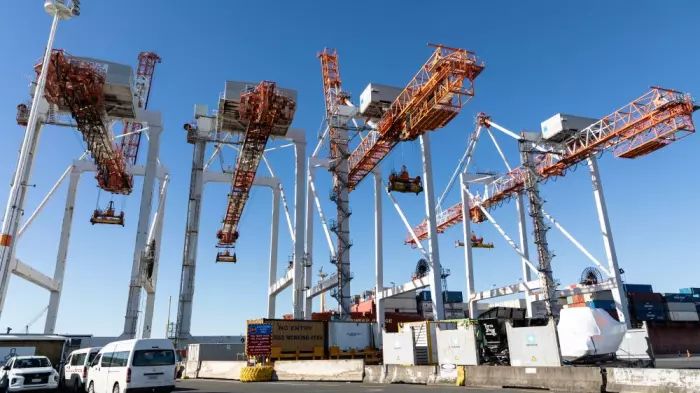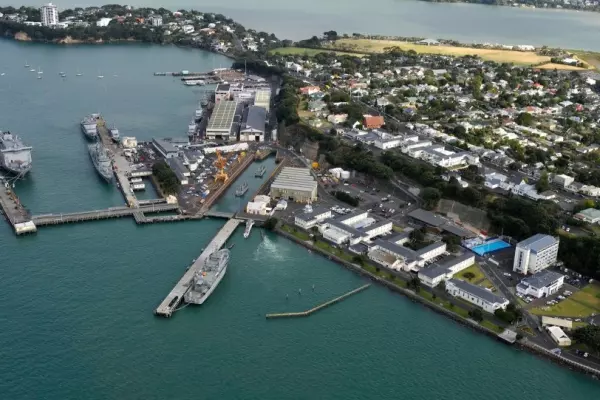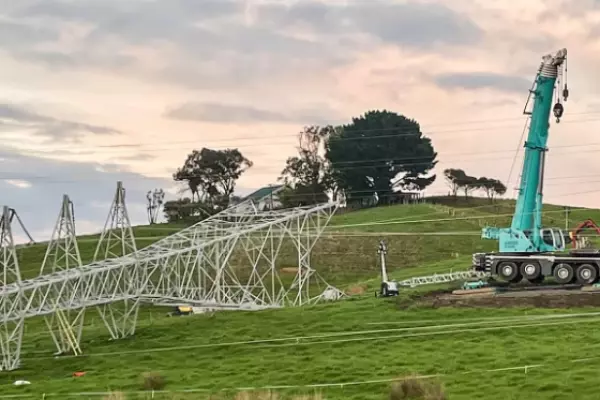Auckland International Airport is confident that people are becoming travel-hungry again – so much so that the airport has decided to lift its profit guidance for 2023, but not enough to deliver a dividend.
The airport’s chair, Patrick Strange, was full of hope for the future when he opened the airport’s annual meeting yesterday and told shareholders that the company had experienced an “extraordinary” year.
Despite the “volatility and uncertainty” that the airport company had dealt with since the pandemic started, he said the airport had managed to work through it and come out the other side stronger.
‘Apples and oranges’
Strange touched on the company’s 2022 financial results, but said he didn’t want to compare them with the 2021 financial period, as it would be like “measuring apples with oranges”.
The company managed to beat its guidance and reported a profit of $191.6 million in the year ended June, which was driven by a $204m increase in the valuation of its property portfolio.
Yesterday Auckland airport lifted its 2023 profit guidance to be between $100m and $130m – up from its original August guidance of between $50m and $100m – thanks to a rebound in the aviation market.
Strange said aviation travel had seen a massive increase since the company’s report in August and was the reason behind the guidance jump.
But a dividend won’t be considered until the end of the 2023 financial year, he said.
“Our understanding is we’ve got to be solid and on the road to recovery before that happens,” he told shareholders.
‘Major bright spot’
Aviation might’ve come to a grinding halt over the pandemic, but Strange said the airport’s investment property business had provided a “major bright spot”.
The investment portfolio valuation was boosted by 10% to $2.9 billion, and rent went up 9% year-on-year to $127.5m.
When it came to airport projects, the almost 60-year-old domestic terminal and its associated infrastructure had reached capacity and was “nearing the end of its life”. The pandemic had deferred moving on with its replacement.
Progress had continued on the airport’s priority project – the development of a combined domestic and international jet terminal – as well as new infrastructure for regional passengers, a new baggage system and terminal roading.
“We’re working very hard to attract international airlines to return to Auckland – with some success,” Strange told the audience.
“New Zealand is attractive, but so are other countries.”
‘Heading in the right direction’
Chief executive Carrie Hurihanganui said the airport was confident passenger numbers were “heading in the right direction” although they were still down by 13% to 5.5 million people from the previous year.
She provided more detail on the company’s capital projects and said during the 2022 financial period, more than $250m went on capital expenditure.
Another $80m had been invested in progressing the combined domestic and international jet terminal.
The exact timing of the combined project would be “guided” by the conclusion of airline consultation, but Hurihanganui said it would be a five-year build from when construction started.
She described the airport’s $300m transport-hub project as “much more than just a carpark building” and said it would incorporate 400 metres of public curbside pickup and drop-off and 150 spaces for electric vehicle charging.
“For the full 2023 financial year, we are now anticipating international passenger numbers will be between 60% and 70% of pre-covid levels, and domestic passenger numbers between 85% and 90%,” she said.
‘Airlines need airports and airports need airlines’
Shareholder questions mostly stuck to the theme of parking issues and airport access gripes.
Strange admitted that getting to the airport was often not easy and agreed that there were some “lumpy issues” with the current parking opportunities at the airport.
“We’re doing our best,” he said. “It’s not always perfect.”
BusinessDesk also asked Hurihanganui how airlines and airports were reconfiguring their – often tense – relationship with each other in an environment that had hit all aviation sectors hard.
She said, historically, there had “absolutely” been a track record of tension between airports and airlines, but covid-19 had made people realise that the two sectors were in an ecosystem together.
“Airlines need airports, and airports need airlines,” she told BusinessDesk.
“Does that mean you're going to agree on everything all the time? No, but engaging and finding those common interests – of which there are quite a few – is important.”
Auckland International Airport shares rose 2.2% to $7.37 yesterday on the New Zealand stock exchange.















